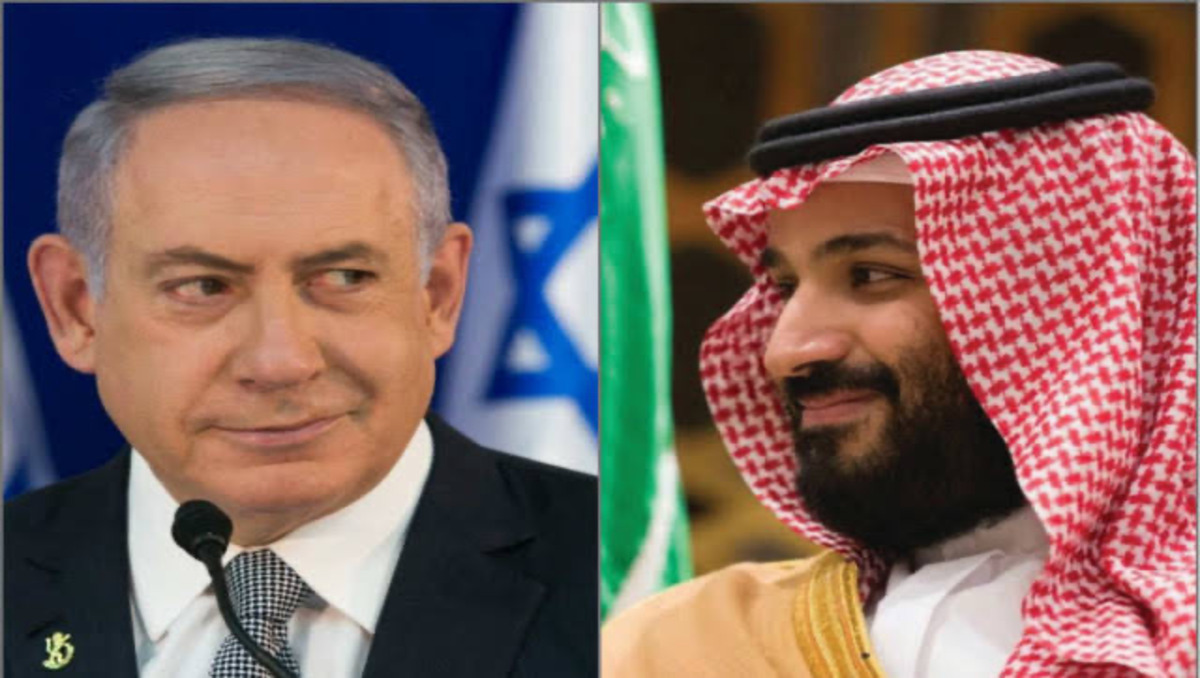The US lead normalisations between Israelis and Arabs that kicked off during the Trump Administration is now under the stress of delay before the polls in the US next year. The US President Biden was following suit, brokering a peace deal between the Saudis and Israel but the recent Hamas’ attack on Israel altered the course of events that could have led to the greatest diplomatic victory for Biden. The Saudi-Israeli peace deal is in tatters against the ensuing catastrophe.
Just a few days back Israel’s flagship Iron Dome defence system failed to guard the state against a barrage of missile attacks fired by Hamas. Israel has responded by air strikes into the Gaza Strip and seizure of the city. Reportedly Tel Aviv is gearing up for a ground offensive into Hamas’ territory.
Amid the escalations, United Nations General Secretary Antonio Guterres has appealed to HAMAS to free the hostages without conditions and Israel to end its Gaza blockade.
The prospects for Israel-Saudi deal
These developments have opened up new dynamics in the geopolitics of the Middle-East. Earlier characterised by the peace processes between the Sunni Arabs and Israelis mediated by the US, now the question of rapprochement between Jerusalem and Mecca looms large in West Asia.
The Hamas attack has popped up pro-Palestine sentiments across Arabia and Levant and Muslims of the region are sympathetic to Palestinian cause. The Middle-East has witnessed pro-Hamas protests in Bahrain, Yemen, Syria, Lebanon and Jordan as the Israeli defence forces pummel Gaza.
In the aftermath of the attack Arab streets are echoing the ‘invasion of Israel’ as ‘heroic’. Saudi crown prince Mohammed Bin Salman in a phone call with Iran’s president Ebrahim Raisi stressed upon Islamic unity in these tough times.
Israel and Saudi Arabia have covertly engaged in security and intelligence co-operations since long back but the Sunni state has publicly declared the peace process with the Jews is stalled for now. Saudis were willing to exchange ambassadors with Israel, a deal brokered by the US which could have potentially offered Mecca with civilian nuclear technology.
Saudis have previously rounded up Hamas’ terrorists, leaders and supporters on their soil for spreading terrorism and not conforming to the rules but now the monarchy cannot afford to be hard on them given Saudi Arabia’s symbolic leadership of the Muslim world. This might further push the Saudi-Israel peace deal into the future.
Iran has come under suspicion of involvement in Hamas’ assault on Israel as Tehran’s support for the terrorist group is widely known. It is impossible to engage in conventional warfare with Israel and therefore Iran chose to deploy and support proxies to counter Israel in the region.
Iran’s impact on the Saudi-Israel deal
Iran views Israel with enmity and feels Tel Aviv is a US proxy in the Middle-East to control and mould the regional architecture. Iran mocks the Jewish state as a ‘cancerous tumour’ which must be eradicated from the Muslim dominated Middle-East.
The Saudi-Israel peace deal will overhaul the present regional dynamics. Iran would always resent a new form of cooperation between the Arabs and Israelis. Both the Sunni Arab states and Israel perceive Iran as a revisionist state that seeks to alter the present regional balance of power. Iran aspires to be the leader of the Muslim world by challenging the Saudi monarchy and being the true flag bearers of Palestinian homeland cause.
A security architecture composed of Arabs and Israelis and independent of Tehran would be detrimental to Iran’s security. Iran’s IRGC has since long back struggled to halt the Arab states drifting towards the Jews.
The conflict has potential to spill over to other middle-eastern territories. Hezbollah, another Iranian proxy and formidable political organisation in Lebanon has pledged to open a second front against Israel.
The recent developments have hampered the ongoing normalisation process between Sunni Arabs and Jews. As the prospects of peace looms large against the geopolitical changes in the Middle-East, the normalisation of ties between Jerusalem and Mecca feels like a far fetched dream.
